© 2025 MJH Life Sciences™ , Patient Care Online – Primary Care News and Clinical Resources. All rights reserved.
New Tools to Enhance Cystic Fibrosis Patient Care
Implementing these assessments, interventions, and mobile apps could contribute to improved disease detection, treatment strategies, and adherence.
Recent cystic fibrosis (CF) research reports have introduced a variety of new practice tools-assessments, interventions, and mobile apps-that could contribute to improved patient care in the areas of disease detection, treatment strategies, and adherence. Scroll through the slides below to find concise summaries of key points.
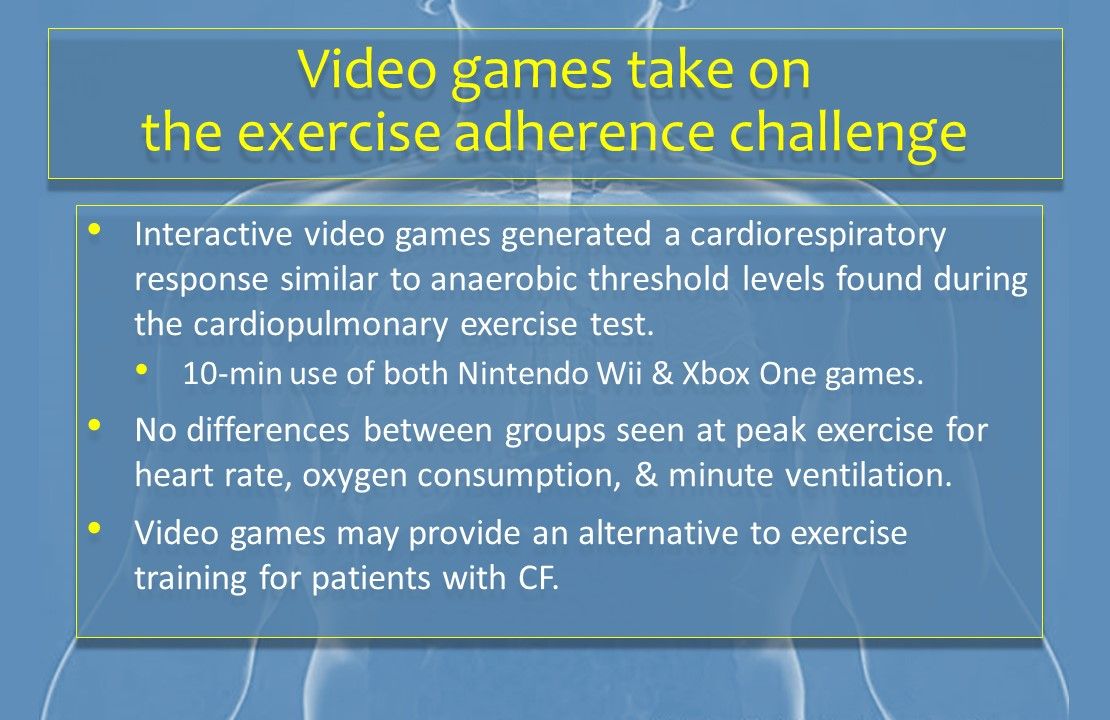
Video games take on the exercise adherence challenge. The use of interactive video games by patients with CF generated a cardiorespiratory response similar to anaerobic threshold levels found during the cardiopulmonary exercise test. There were no differences between groups at peak exercise for heart rate, oxygen consumption, and minute ventilation. Study authors concluded that video games may provide an alternative to exercise training for patients with CF. The study was published online on January 13, 2020 in the Journal of Cystic Fibrosis.
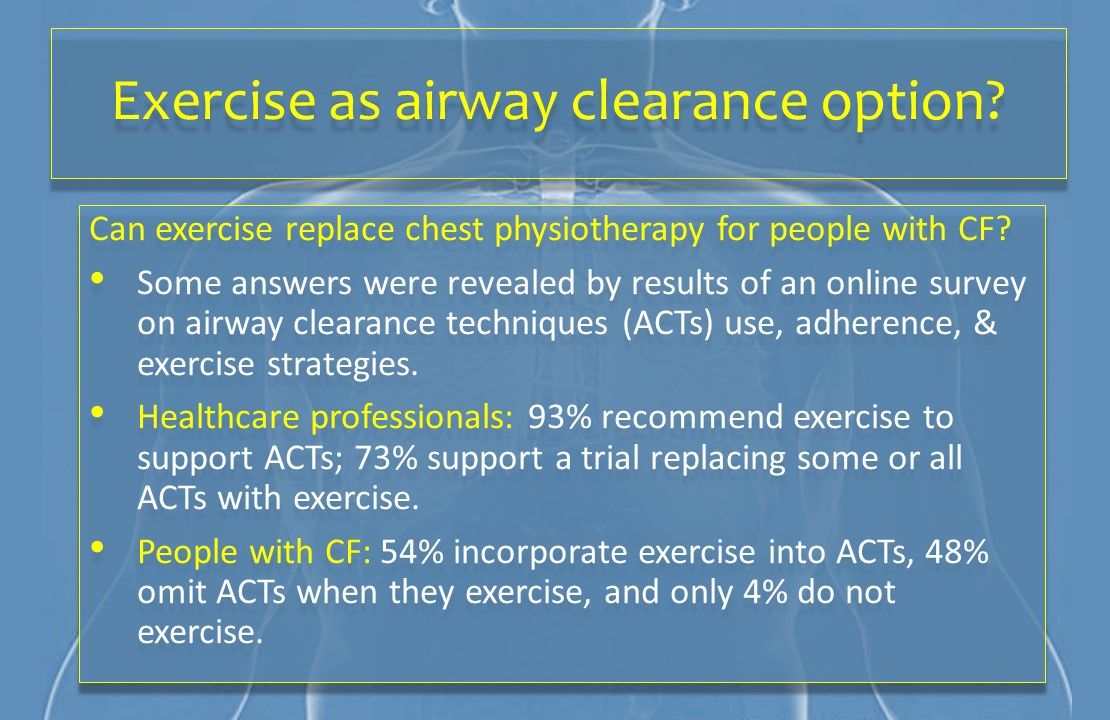
Exercise cited as airway clearance option. An online survey on airway clearance techniques (ACTs) use, recommendations, adherence, and exercise strategies answered the question “Can exercise replace chest physiotherapy for people with CF?” Among healthcare professionals, 93% recommend exercise to support ACTs; 73% support a trial replacing some or all ACTs with exercise. Among people with CF, 54% incorporate exercise into ACTs and 48% omit ACTs when they exercise. Only 4% do not exercise. Results were published in the Journal of Cystic Fibrosis on November 15, 2019.
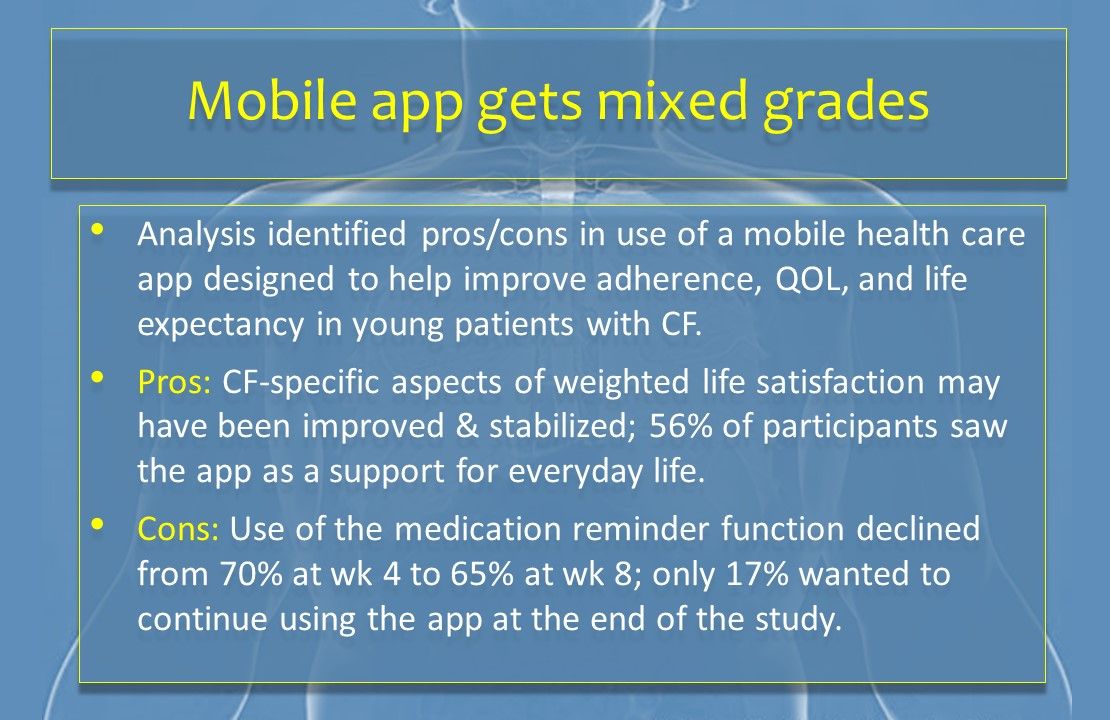
Mobile app gets mixed grades. An analysis of a mobile health care app as support for self-management and independence to improve adherence, quality of life, and life expectancy in young patients with CF showed some pros and some cons. A few CF-specific aspects of weighted life satisfaction (respiration and lack of handicap by CF) may have been improved and stabilized, and 56% saw the app as a support for everyday life. However, use of the reminder function for medication declined from 70% at week 4 to 65% at week 8, and only 17% wanted to continue using the app at the end of the study. The analysis was published on November 21, 2019 in JMIR mHealth and uHealth.
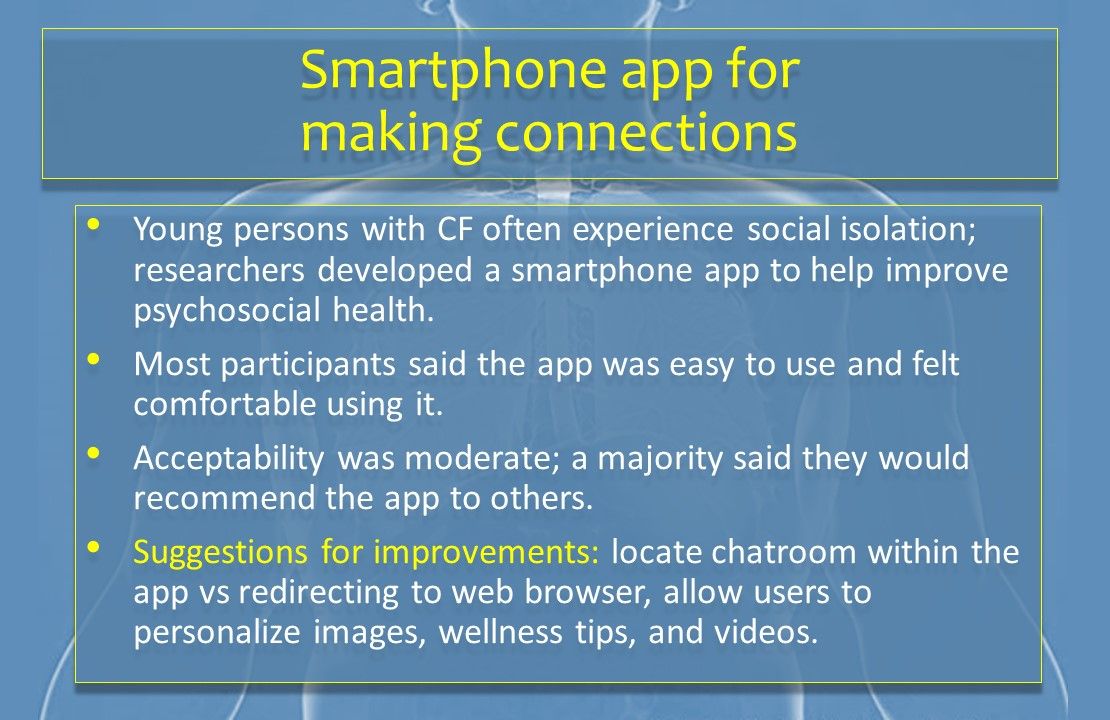
Smartphone app for making connections. Because young persons with CF often experience social isolation, study authors developed a smartphone app to improve their psychosocial health. Most participants said the app was easy to use and felt comfortable using it (86% and 96%, respectively). Acceptability was moderate; 77% said they would recommend it to others. Their suggestions for improvements: locate the chatroom within the app and allow users to personalize images, wellness tips, and videos. The study was published online in the Journal of Cystic Fibrosis on January 13, 2020.
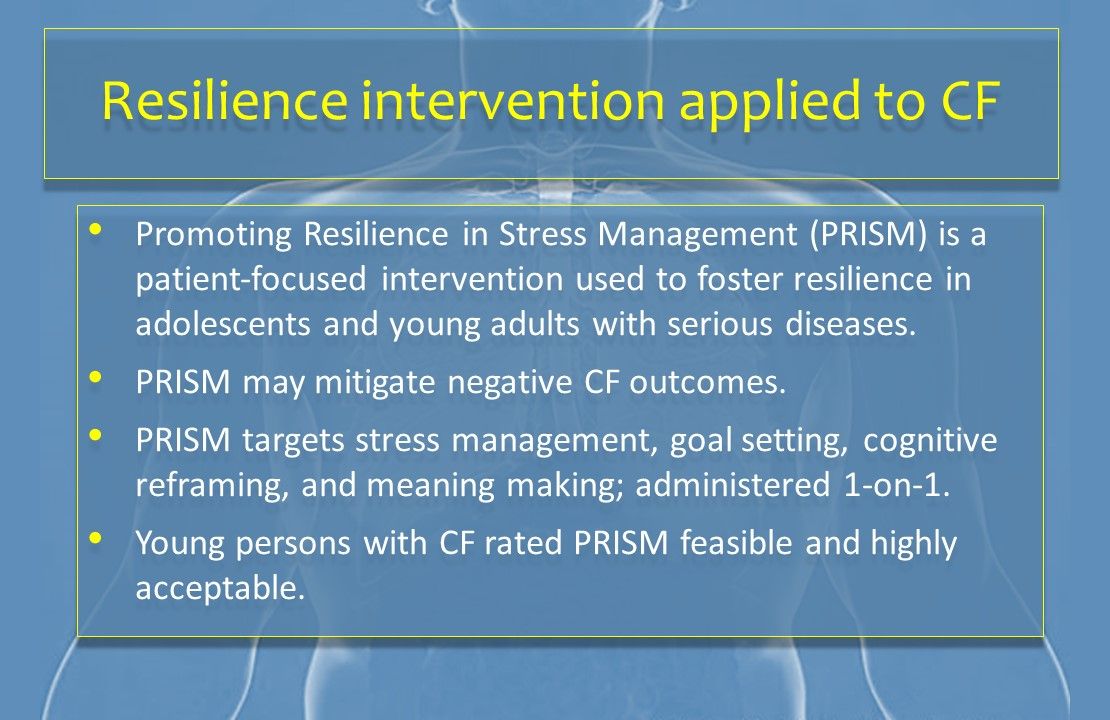
Resilience intervention applied to CF. Promoting Resilience in Stress Management (PRISM), a patientâfocused intervention used to foster resilience in adolescents and young adults with serious diseases, may mitigate negative CF outcomes. PRISM targets stress management, goal setting, cognitive reframing, and meaning-making and is taught one-on-one, often during hospitalization. In results of a feasibility study published in Pediatric Pulmonology on December 3, 2019, young persons with CF rated PRISM feasible (80% completion of all sessions) and highly acceptable (based on feedback about timing, content, and delivery of intervention).
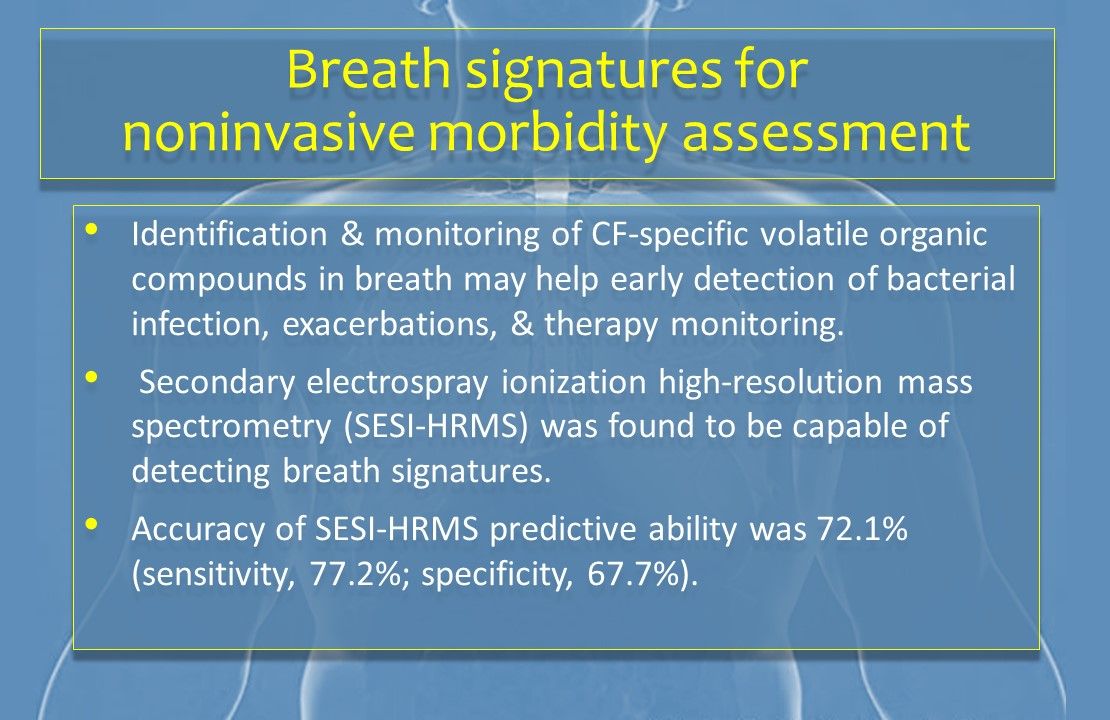
Breath signatures for noninvasive morbidity assessment. Identification and monitoring of CF-specific volatile organic compounds in breath shows promise for early detection of bacterial infection, exacerbations, and therapy monitoring in young patients. Secondary electrospray ionization high-resolution mass spectrometry (SESI-HRMS) was found to be capable of detecting breath signatures in a recent study published in ERJ Open Research on January 10, 2020. Accuracy of SESI-HRMS predictive ability was 72.1% (sensitivity, 77.2%; specificity, 67.7%).
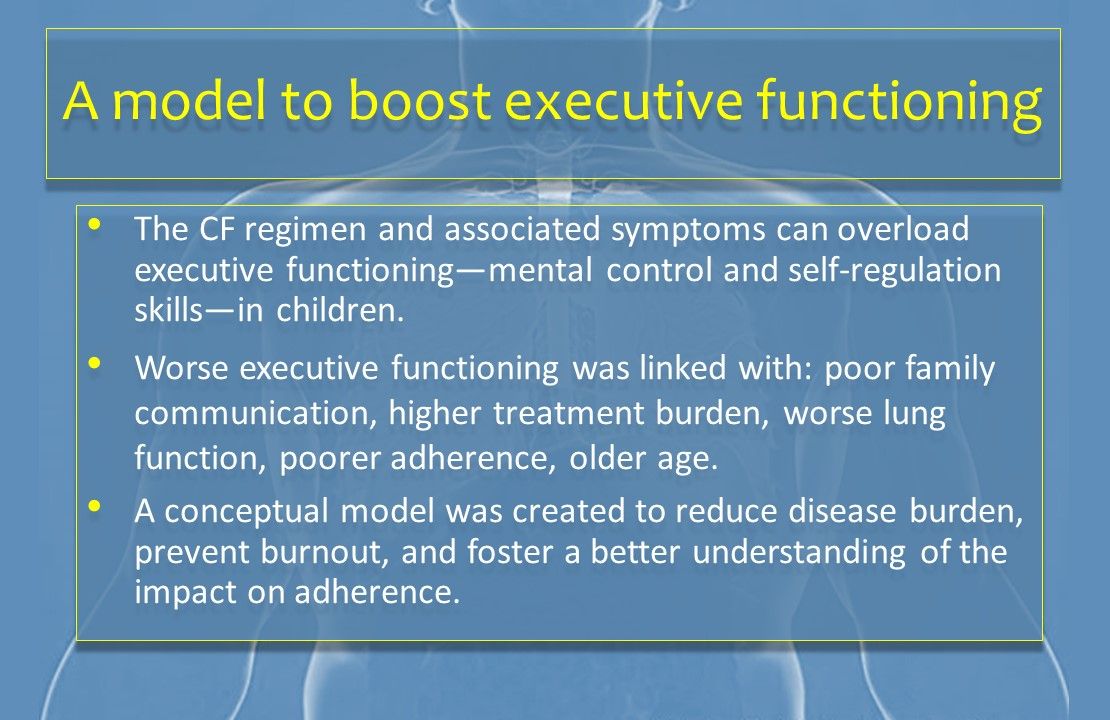
A model to boost executive functioning. The CF regimen and associated symptoms can overload children’s otherwise adequate mental control and self-regulation skills. Worse executive functioning was linked with poor family communication, higher treatment burden, worse lung function, poorer adherence, and older age. Study authors writing in Pediatric Pulmonology on January 17, 2020 provided a conceptual model that features reducing disease burden, preventing burnout, and gaining a better understanding of the impact on adherence.

